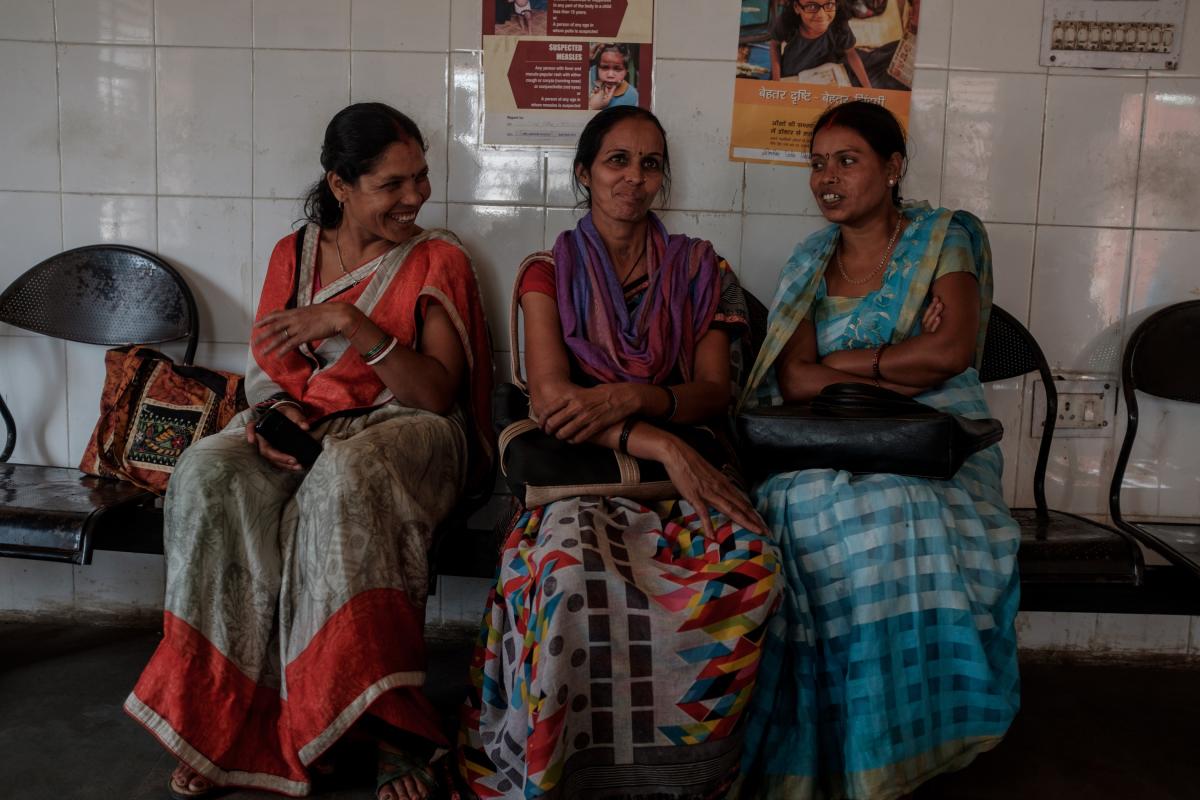World Health Organization
From Mandate to Implementation: Operationalizing National Multisectoral Governance for NCDs in Kuwait
Multisectoral Action
17 Dec 2025
World Health Organization | 11 Mar 2024
Cardiovascular diseases pose a global health challenge. India is one country tackling high prevalence of coronary artery disease, a health condition affecting the flow of blood to the heart. In managing and treating coronary artery disease, adhering to prescribed medications is critical. Yet, treatment-adherence often poses a challenge especially in low-middle-income countries due to financial or access constraints, and limited knowledge of the disease and the importance of drug adherence.
In response to this critical health issue, the Amrita Institute of Medical Sciences in Kochi, Kerala, India, is currently conducting a research study in collaboration with the World Health Organization Norway NCD Flagship Initiative, supported by the Norwegian Agency for Development Cooperation. The study employs implementation research to better understand and improve medication adherence in coronary artery disease patients, using mobile health (m-health) technology and Community Health Workers (CHWs) to improve two-way communication between patients and healthcare providers in rural settings.
The study is embedded within the ENDIRA (Epidemiology of Noncommunicable Diseases in Rural Areas) cohort, and includes some 114,000 individuals and 2064 coronary artery disease patients. Previous findings within this cohort revealed alarmingly low adherence to chronic care medications among coronary artery disease patients. On average, only 2.8 of the mandated 4 drugs were taken regularly by patients, including crucial beta-blockers, angiotensin-converting enzyme (ACE) inhibitors, statins, and anti-platelet medications.
The new study, running from September 2023 to September 2024 in Kerala, focuses on how mobile health technology and CHW-led interventions could effectively improve medication adherence in coronary artery disease patients. A comprehensive evaluation framework, encompassing aspects like acceptability, appropriateness, feasibility, and sustainability, will guide the assessment.
CHWs, notably Accredited Social Health Activists (ASHAs), play a pivotal role in delivering essential healthcare services to underserved rural populations in India. In South India, ASHAs have been actively engaged in team-based PHC efforts since 2005, primarily working in maternal and child health. Their responsibilities encompass counselling, ensuring compliance with follow-up appointments, and offering health education. Expanding the network and services of ASHAs holds great potential for healthcare systems to reach marginalized populations with NCD-related services, foster community engagement, and support patients in managing chronic health conditions. To maximize impact, it is imperative to equip ASHAs with effective training, address their voluntary status and ensure collaboration with other members of the primary care team.

The current research project builds upon insights from an adherence study involving 2064 individuals with heart disease within the same cohort. Capitalising on the widespread use of mobile phones and with each ASHA reaching up to 1000 community member, the study aims to both analyse and enhance adherence to medications for heart disease.
The study is further designed to be integrated into the public health system, utilising ASHAs to improve adherence and evaluating the intervention's impact through mid-level-service providers such as nurses, who are equally crucial in assessing compliance with medicines. One key question is whether the engagement of ASHAs leads to increased uptake of free-of-cost medications for NCDs within the public health system.
The research team is also documenting the multiple challenges of community- and mobile technology-based interventions, particularly aligning all stakeholders, emphasising the benefits of adherence, addressing message/jingle fatigue, establishing a scalable model for wider implementation, and ensuring sustainability.
To gain insights into perceptions, barriers, and facilitators related to medication adherence, the research employs a combination of focus group discussions and in-depth interviews involving various stakeholders. These include people diagnosed with heart disease, front-line health workers, mid-level-service providers, nurses, primary care physicians, and district and state-level health officials. Key findings from this qualitative study will be integrated into the intervention and study protocols.
Initial discussions with the District Program Manager, Public Relation Officers, and ASHA coordinators of the National Health Mission took place in collaboration with the District Medical Officer. A first series of training sessions for ASHAs helped explore their perspectives of the study, and ensure feasibility and active communication.

Detailed research findings will be shared in late 2024.
For more information, please visit the Alliance webpage here.
This country story is part of a series on implementation research projects aiming to improve integrated NCD services at primary health care (PHC) level.